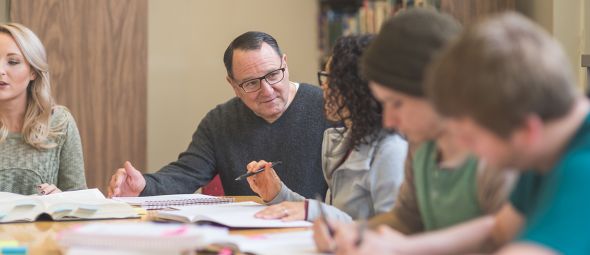Featured Content

Social determinants of work
Last updated on May 14, 2024
Research Summary
Creating Pathways to Remote Work Opportunities for Workers with Disabilities
Remote work can offer significant benefits for both workers and businesses and provides important opportunities for the meaningful inclusion of workers with disabilities. Employers, policymakers, workforce developers, and educational institutions all have an important role to play in reducing occupational segregation among disabled workers to open equitable pathways to remote work arrangements and career mobility.
Last updated on May 14, 2024

Skills and training
Last updated on May 07, 2024
Research Summary
Completing College is Key for Black Men to Earn Higher Wages and Close the Earnings Gap between Black and White Workers
The earnings gap in the US labor market between Black and white workers is a longstanding problem. New research shows that one way to help close that gap is for colleges and universities to help Black male students complete their college degrees.
Last updated on May 07, 2024

Worker voice, representation, and power
Last updated on April 30, 2024
Research Summary
The Consequences of Signing Noncompete Agreements among Low-Wage Workers and Those without College Degrees
Noncompete agreements are commonly used by businesses when hiring highly educated, high-wage workers entrusted with sensitive information or specialized training, but new research finds that 14 percent of workers without a bachelor’s degree and 13 percent of workers earning less than $40,000 per year are also bound by these contracts. The Federal Trade Commission now wants to ban all noncompetes because they often are associated with harmful employment outcomes for workers’ career mobility and income growth, relying in part on this new research.
Last updated on April 30, 2024
WorkRise Shorts

Economic context
Last updated on April 30, 2024
Video
WorkRise Shorts: Workers’ Assessments of AI’s Impact on Jobs
Rutgers University distinguished professor Carl Van Horn, founding director of the John J. Heldrich Center for Workforce Development, shares insights from his research, which looks at US workers’ attitudes toward government oversight of AI technologies and its impact on jobs.
Last updated on April 30, 2024

Skills and training
Last updated on April 23, 2024
Video
WorkRise Shorts: The Harvard Workforce Almanac
The workforce almanac is a first-of-its-kind open-source directory mapping thousands of workforce training providers across the US. The workforce training system in the US has historically been treated in fragmentation, Nathalie Gazzaneo, co-director of Harvard Project on Workforce, shares.
Last updated on April 23, 2024

Economic context
Last updated on April 16, 2024
Video
WorkRise Shorts: Racial Inequity in the Workplace with Adia Harvey Wingfield
Despite a multibillion-dollar diversity industry and decades passed since the Civil Rights Act, workplaces still see substantial racial inequity.
Last updated on April 16, 2024
The Latest
Upcoming Events
Event type:
Internal
External
May
20 - 22
National Association of Workforce Development Professionals
NAWDP's 40th Annual Conference
View Event DetailsJun
16 - 18
Jul
22 - 23
Sep
24 - 26
About Working Knowledge
About Working Knowledge
Through careful curation of data, research, and evidence-based insights, Working Knowledge equips policymakers, business leaders, advocates, and allies with the information they need to build a more equitable, resilient labor market.
Learn more about WorkRise